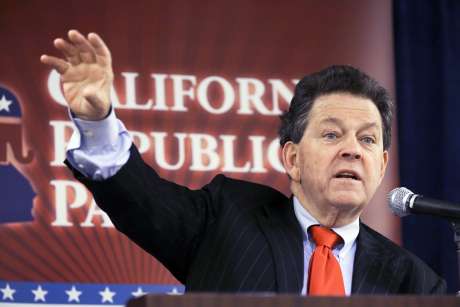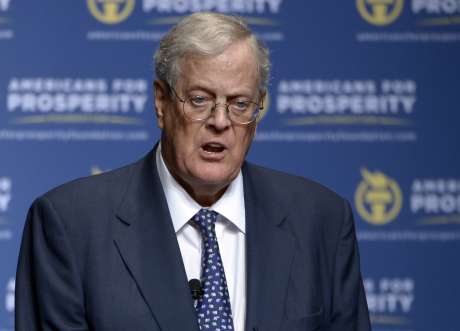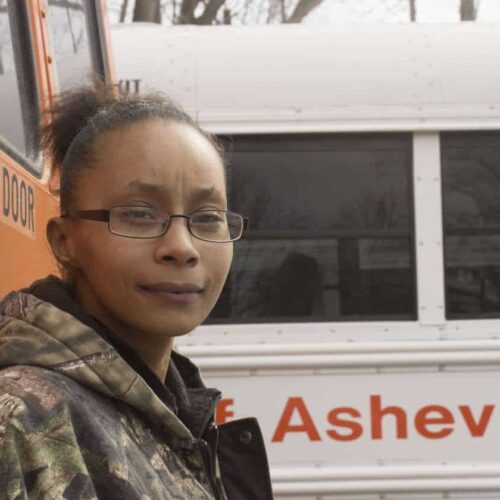Introduction
May 3, 2017: This story has been corrected.
A group of conservative think tanks wants the nation’s tax system to look more like North Carolina’s. But so far, for the working poor, that hasn’t been a great deal.
Experts from think tanks heavily subsidized by anti-tax, free-market groups such as the Charles Koch Foundation have descended on state capitals armed with scholarly research arguing that tax cuts for the well-to-do lead to economic growth.
North Carolina has been one of the laboratories for this approach. In the Tar Heel State, wealthy families had their state taxes lowered while poor folks saw their tax burden increased or go unchanged. In 2013, the state legislature cut state income taxes, which are progressive — meaning the rich pay a higher rate than the poor — and expanded what was subject to the state sales tax, which is regressive, meaning the poor spend a disproportionate amount of their income on the tax.
In Washington, D.C., the Trump administration and Congressional Republicans have been considering a similar approach — lower federal income-tax brackets and a tax on imports — that some tax experts say would have comparable outcomes. Some of the same conservative groups that convinced states to change their tax systems have advised the Trump administration on economic and tax policy. Trump’s initial proposal, which he is expected to discuss Wednesday, may not include a border tax, but such a levy continues to be a key provision of what Congressional GOP members are pushing.
The effects on lower-income families are already playing out in a handful of states. Since 2010, North Carolina, Mississippi, Kansas, Michigan, Maine, Oklahoma and others have either reduced income-tax rates during some years, passed laws to do so in the future, or have put their states on a path that could remove income taxes. By 2022 Mississippi will cut taxes for the first $5,000 earned for all taxpayers, but will leave intact a flat tax for higher incomes. Maine dropped its top rate from 8.5 percent to 7.95 percent in 2011 and to 7.15 percent in 2015. (It increased it to 10.15 percent just this year for those earning $200,000 or more.) At the same time, many have increased sales and user taxes, such as those charged on such every-day necessities as gasoline and soft drinks, which generally hit the poor harder. Half a dozen other states — Maryland, Illinois and Virginia among them — tried to do the same in this year’s legislative sessions.
If sales taxes “keep going up, I’m going to end up in the shelter with the ladies where I work,” said Juanita Maestos, who works as a counselor at a homeless service center in Seattle and has watched the state Legislature fail numerous times to institute an income-tax system to reduce Washington’s nearly 9 percent sales tax. “You keep doing stuff like this and nobody is going to win.”
‘Income-tax-free zone’
Two of the biggest forces behind the tax reforms have been Arthur Laffer, a blast from the past who’s considered the father of supply-side economics, and the Tax Foundation, a Washington, D.C.-based think-tank that markets itself as a nonpartisan research group, but is heavily supported by conservative-led groups such as the Charles Koch Foundation and the John Templeton Foundation.

Laffer, now 76, developed the eponymous Laffer Curve, a nearly four-decade-old theory that holds lower tax rates can encourage people to work more, leading to higher tax revenue. The argument became the basis for President Ronald Reagan’s economic policies known as Reaganomics and later for the conservative tea party. Laffer’s policies have been debated endlessly. His opponents argue his theory led to soaring federal debt in the 1980s and higher poverty, leading many to discount the theory. Those in favor of his ideas point to higher economic growth during Reagan’s two terms.
Laffer founded the Laffer Center, whose mission includes “educating people on economic ideas, [particularly] the lessons of supply-side economics.”
In December 2012, Arduin, Laffer & Moore Econometrics, an economic and policy consulting research firm, published a report that identified a few of North Carolina’s economic “trouble spots,” including its “exceptionally high personal income tax rate — 7.75 percent at the top end — and an uncompetitive corporate income tax when compared with other southern states.
“Income taxes have a larger negative impact on economic growth than consumption-based taxes,” the report argued.
Just a month before, North Carolina voters had delivered both the governorship and the General Assembly to Republicans for the first time in more than 100 years.
Laffer said he spent about a day or two in North Carolina when the legislature was considering its tax code changes and spoke with many lawmakers. Laffer said he isn’t sure what influence he had on the tax legislation but added he’s proud he convinced legislators such as Republican Sen. Bob Rucho, who was then co-chairman of the powerful Senate Finance Committee, to think about what Laffer perceives as smarter tax policies.
Rucho said the report circulated among lawmakers and was the subject of discussions and seminars held at the state legislature building in Raleigh at the same time lawmakers were writing tax-reform legislation.
“People will, if they’re smart, look at what someone else has done and say, ‘Why wouldn’t I want to do the same thing in my state?’ ” said Rucho, who supported the changes.
In July 2013, the North Carolina General Assembly approved the reforms that replaced the state’s graduated state income tax rate, which had ranged from 6 percent to 7.75 percent of a citizen’s income, in favor of a lower flat rate of 5.8 percent, which dropped to less than 5.5 percent this year. (This month, the legislature passed, mostly on a Republican party-line vote, further cuts in the individual and corporate tax rates; both would be the lowest in the Southeast.) To cover lost revenue, lawmakers broadened what is taxed by the state, including items such as movie and sporting events tickets, electricity and mobile homes. North Carolina charges a 4.75 percent state sales tax and counties can add on another 2 percent or more. The state also repealed its Earned Income Tax Credit, which had given more than 900,000 low- to middle-income North Carolinians a $125 to $500 reduction in state taxes.
Double whammy
But in Asheville, North Carolina, Maria Wilson-Taylor says she hasn’t benefited from the changes.
Last October, Wilson-Taylor, 27, started noticing the money she took home from her two jobs wasn’t lasting as long. After poring over dozens of receipts — Wilson-Taylor is a meticulous record keeper — she calculated she was spending more in sales taxes on various purchases. That meant less for her out of the $900 in monthly take-home pay from her job as a cashier at a Payless Inc. shoe store at the Asheville Mall and as a part-time banquet server at the upscale Asheville Crowne Plaza spa and fitness resort, a three-mile drive down I-240, but socio-economically worlds away from her red-brick, two-story subsidized apartment at Lee Walker Heights, where Wilson-Taylor and her son live.
That wasn’t the only tax hit Wilson-Taylor took. When filing her taxes last year, she learned her state income tax refund would be half, or about $250 less, than what she received in 2015, when she put the refund toward the purchase of a 2001 gold Toyota Camry with 120,000 miles. The car enabled her to better juggle getting to work and picking up her son 6-year-old son, Zyheim, from Vance Elementary School. Her refund this year will be smaller still.
The tax changes, Wilson-Taylor said, make it harder to reach her dream: moving out of public housing. “I feel like I’ve taken two steps forward but then the taxes come,” and it’s one step back, said Wilson-Taylor, who recently was laid off from her Payless job because of the company’s financial struggles.
For Wilson-Taylor, the changes enacted by the state in the tax system led to an increase of $5 to $10 a paycheck — “nothing that I could save,” she said. And the expanded sales tax and fewer deductions ate that away and then some, she said.

(Lateshia Beachum/Center for Public Integrity)
Coordinated effort
Wilson-Taylor’s financial circumstances are the direct result of North Carolina lawmakers following the Laffer report, which was written in partnership with the John William Pope Civitas Institute. The group is a conservative North Carolina think tank that aims to “inform elected officials about citizen-based, free-market solutions to problems facing North Carolinians.”
The institute receives money from numerous conservative groups. It’s mostly supported by the John William Pope Foundation, headed by Arthur Pope, chairman and CEO of Variety Wholesalers, Inc., which owns discount retail chains. Pope has donated millions of dollars to conservative causes, including $1.3 million to Civitas, according to tax documents.
Pope is also friends with conservative mega-donors Charles and David Koch, and served on the board of the Koch-supported low-tax, free-market advocacy group Americans for Prosperity. In addition, Pope was the budget director for former Republican Gov. Pat McCrory when the tax changes were being considered by lawmakers.

Among Civitas’ other largest donors are the David Koch Foundation and the State Policy Network, which serves as a trade group for conservative think tanks. The David Koch Foundation gave a total of $55,198 to Civitas between 2010 and 2012, and the State Policy Network contributed $60,000 between 2012 and 2014, according to the latest available IRS tax documents.
The foundations, as well as Laffer, are among several conservative individuals and groups that are on a mission to repeal or reduce state income taxes nationwide, said Michael Leachman, director of state fiscal research at the left-leaning Center on Budget and Policy Priorities.
“They’re out there saying the entire South should be an income-tax-free zone,” Leachman said. “You can see this kind of institutional, national push from them.”
The Center on Budget and Policy Priorities is funded by liberal groups, including the Sandler Foundation, which also gives to the American Civil Liberties Union, the environmentally conscious Oceana and founded the investigative journalism group ProPublica. The foundation is among the Center’s largest donors, giving the group $7.7 million from 2011 to 2014.
But Brian Balfour, executive director of the Civitas Institute, disputes the idea that the tax reforms were supported by conservative groups only.
“To try to claim that was some far-right concoction or convention is simply not true,” Balfour said. He added that bi-partisan committees met for years about North Carolina’s tax system before the reforms were passed in 2013.
The Center and other liberal tax groups frequently butt heads with the conservative tax organizations when they go before state legislatures.
Spreading the tax-cut message
Laffer has also presented his tax theories to lawmakers in Washington state, Delaware, Kentucky and Puerto Rico. He’s usually invited by and receives compensation from independent groups like Civitas or lawmakers.
That’s what happened in Kansas before Gov. Sam Brownback signed into law the largest tax cuts in the state’s history in 2012. That year, Laffer visited Kansas three times and was paid $75,000 to be a consultant for Brownback’s tax-reform plan, which cut Kansas’ top income tax bracket by almost a quarter (from 6.45 percent to 4.9 percent), while reducing the bottom rate just 14 percent (from 3.5 percent to 3 percent). He also exempted from taxes “pass-through entity earnings” — money earned from organizations such as sole proprietorships and partnerships.
The 2012 plan that was eventually passed reduced the sales tax a slight 0.15 percent to 6.15 percent. In 2015, however, lawmakers, facing a $400 million budget deficit, voted to increase the sales tax above its original level, to 6.5 percent.
Laffer contends that over the last decade, states without incomes taxes (there are seven in all) “have grown much, much faster” than those states with high income taxes.
| State | Proposal | Tax rate changes | Status |
|---|---|---|---|
| Alabama | HB 411 | Raise income thresholds for claiming standard deductions. | Referred to committee on Ways and Means Education. |
| Arizona | HB 2528 | Changes amount of personal tax exemptions a person could take based on the Metropolitan Phoenix Consumer Price Index | In Senate |
| Georgia | HB 329 | 5.4% flat tax | Failed |
| Idaho | HB 67 | 7.2% income tax rate | Vetoed by Governor |
| Iowa | SF 38 | Eliminates income tax | Reassigned to subcommittee |
| Kansas | HB 2395 | 5% flat tax | Passed by Committee on Taxation |
| Kansas | SB 214 | 4.6% flat tax | Failed |
| Maine | Governor’s budget proposal | 5.75% flat tax | Ongoing |
| Maryland | SB 113 | 3.9% flat tax | In Senate |
| Michigan | HB 4001 | Annual rollback of rate until zero | Failed |
| New Mexico | HB 412 | 5% income flat tax, adds tax on food. | Passed House |
| South Carolina | S 600 | Reduce number of tax brackets from six to three. | Referred to Committee on Finance |
| Virginia | SB 757 | 5.75% flat tax | In committee |
| West Virginia | HB 2934 | 5.1% flat tax | In committee |
| West Virginia | HB 2933 | 5.1% flat tax, with expanded sales tax of 5% | Tabled on 3/30/2017 |
| West Virginia | SB 335 | 2.5% flat tax, 8% sales tax | In committee |
But there’s little clarity on this issue.
Kim Rueben, project director for the state and local finance initiative at the Urban-Brookings Tax Policy Center, said states without income taxes like Texas and Alaska are struggling to pay their bills due to falling oil prices. Alaska introduced a bill this year that would reinstate the state income tax, which was abolished in 1986.
Other research shows that high taxes have no effect on economic growth, or tax cuts’ effects are ambiguous at best, according to a Brookings Institution study.
Like in North Carolina, Laffer downplayed his influence in Kansas, saying what he does is “ticky-talk, and [then] I go home.”
But Kansas Rep. Stan Frownfelter, a Democrat who attended Laffer’s 2012 presentation but eventually voted against Brownback’s tax cuts, called Laffer the “brainstorm” behind Brownback’s plan.
Brownback’s office didn’t respond to requests for comment.
Laffer distanced himself from the tax plan Brownback eventually signed into law. Laffer claims that Brownback initially wanted moderate tax cuts of about $90 million while the legislature passed cuts triple that amount. Republicans also underestimated the number of small businesses that would no longer pay taxes, resulting in a $50 million shortfall, Laffer said.
The tax changes led to lower revenue and budget cuts, including a 30 percent reduction in services for the elderly and disabled, according to the Kansas Department for Aging and Disability Services.
Tax Foundation: Not what it seems?
The other big player, the Tax Foundation, is a Washington, D.C.-based think tank that researches state and federal tax policies, and meets with lawmakers, citizens, and journalists to provide expert advice on tax policy. The group’s mission is to “improve lives through smarter tax policy,” according to the foundation’s website.
Smarter tax policy, the foundation argues, includes making the tax code easier for people to understand and creating rules that don’t penalize individuals or businesses for earning more money or profits, two things that create jobs and economic growth, the group claims.
Ted Boettner, executive director of the West Virginia Center on Budget & Policy, a member of the liberal State Priorities Partnership, which researches how tax policies affect lower income families, said most people don’t fully understand how much the Tax Foundation influences state tax laws.
West Virginia considered a bill this year that would have introduced a flat income tax of 2.5 percent, which would decrease further if certain triggers are met. The bill would have also increased the sales tax from 6 percent to 8 percent, including reinstating a tax on groceries, and increasing taxes on electronic cigarettes, beer and soft drinks, levies that disproportionately hurt the poor.
Boettner said the Tax Foundation’s research is marketed as balanced, but in the end advocates conservative policies that push tax cuts for the wealthy while raising them for lower-income families.
In February, both Boettner and Tax Foundation policy analyst Jared Walczak presented tax plans to the state’s Select Committee on Tax Reform at West Virginia’s Statehouse in Charleston. Boettner told lawmakers that a worker making $26,000 a year would pay $946 more, an 82 percent increase, under the tax bill, according to the Charleston Gazette-Mail. He urged lawmakers to keep the state’s earned-income-tax credit to soften the financial blow on lower income families.
Walczak offered pros and cons about the West Virginia tax proposal but called it “groundbreaking,” and that “sometimes a state needs to consider bolder moves,” the Gazette-Mail reported.
The Tax Foundation has pushed for what critics charge are wealthy-friendly tax policies in other states. The group’s analysts encouraged lawmakers in Maine to consider a flat tax, told Minnesota legislators they should repeal the state’s estate tax, and urged lawmakers in Nebraska to lower its top state income tax rate. The foundation says it is nonpartisan, having supported retaining the Earned Income Tax Credit in North Carolina and opposing Kansas’ tax cuts, however, much of its funding comes from conservative foundations and think tanks.
The policies are similar to those of the groups who fund the Tax Foundation. Nine out of the foundation’s top 10 nonprofit donors support numerous conservative and libertarian causes such as limited government and low taxes, and accounted for a total of $1.1 million in grants between 2010 and 2015, according to the Center for Public Integrity’s search of the latest available IRS tax documents. None of the Tax Foundation’s top donors were liberal groups or organizations that represent lower income groups.
The Charles Koch Foundation and its sister organization the Charles Koch Institute together were the Tax Foundation’s second-largest donor, giving $488,131 between 2012 and 2015, according to the Center’s investigation. The John Templeton Foundation gave $189,000 in 2014. Templeton supports many conservative causes such as the anti-tax group FreedomWorks and the Atlas Network, whose vision is to create “a world where limited governments defend the rule of law, private property and free markets.”
The Earhart Foundation, a large funder of conservative think tanks such as the American Enterprise Institute and the Atlas Network, gave $148,000 to the Tax Foundation from 2010 to 2013. And the Chase Foundation of Virginia, which funds right-wing political and free-market groups, gave $75,000 from 2010 to 2015, according to the Center’s analysis.
“I don’t know if you consider them nonpartisan,” said Derwood Chase Jr., president of the Chase Foundation of Virginia, when asked about the group’s financial support of the Tax Foundation. “I don’t always agree with some of their positions. We are supporting them for their information.”
The Templeton Foundation declined to comment for this story. The Koch and Earhart foundations and the Atlas Network did not return calls requesting comment.
John Buhl, media relations manager for the Tax Foundation, declined to discuss the foundation’s donors in detail, but said no one grantee contributes more than 12 percent of the group’s overall operating funding.
“We support a tax code that’s simpler, more transparent, more neutral and promotes economic growth,” Buhl said. “Some people say that characterizes us as center-right or conservative, but we think it’s something all Americans support.”
Others see it differently.
The Tax Foundation is one of the leading proponents of tax cuts that disproportionately favor the wealthy over low-income families, said Meg Wiehe, director of programs at the Institute on Taxation and Economic Policy, a liberal tax policy group that receives much of its financial support from the Ford Foundation, the left-leaning Bauman Foundation and Coydog Foundation, which supports Planned Parenthood.
Trump, GOP — State Redux
Trump and the Republican-controlled Congress are readying separate tax reforms, but both plans mirror much of what Laffer’s and the Tax Foundation’s have pushed in the states. In fact, Laffer is one of four co-founders of the Committee to Unleash Prosperity, which advised the Trump campaign on economic policy.
And just like the states, if either Trump’s or the House plan, backed by House Speaker Paul Ryan, R-Wisc., becomes law, lower- to middle-income families will gain very little if nothing at all, while wealthy taxpayers gain the most, according to many tax experts.
Trump’s plan and the House Republicans’ proposal would collapse the number of income brackets from the current seven to three. The new tax brackets would be 12 percent, 25 percent and 33 percent. Details are still being worked out, however. Trump told Fox News in March that he “would like to see zero” taxes for those making up to a certain amount. He didn’t elaborate. Trump was scheduled to provide a basic outline of his plan on Wednesday. Published reports said his proposal might not include a tax on imports, but the border tax remains a key provision of what Republicans in Congress want.
The Tax Foundation, in a report released last year, calculated that lower income families would get a 0.2 percent to 0.5 percent increase in after-tax income versus 1.5 percent more for the top 10 percent of wage earners and a 5.3 percent increase for the wealthiest, the top 1 percent.
Kathleen Thomas, a professor of law at the University of North Carolina at Chapel Hill who specializes in tax law, is skeptical.
“I’m not optimistic that lower income people are going to benefit,” Thomas said. “We just don’t have the evidence throughout the past several decades that tax cuts work for lower-income taxpayers.”
Lawrence Zelenak, a tax law professor at Duke University, said low-income earners could gain more after-tax money under the GOP plan, but they would end up paying more on basic goods like clothing if Congressional Republicans’ proposed tax on imports remains part of the reform plan, having an effect much like an increase in state sales tax.
“It’s a tax on domestic consumption,” Zelenak said. “It would be passed through to people based on what they consume.”
While Congress prepares for the tax debate, single-parent Wilson-Taylor in Asheville worries that the proposed federal tax changes would only make life harder, as North Carolina’s tax reforms did.
“They’re going to come for every little penny that you have,” Wilson-Taylor said. “Where is the help when we need it?”
Correction and clarification, 1:36 p.m., May 3, 2017: An earlier version of this story incorrectly stated North Carolina’s actions in regard to the state sales tax rate. North Carolina expanded the items that were subject to the state sales tax. The story also should have made clear that in North Carolina, the state charges a sales tax of 4.75 percent and that another 2 percent, or more, can be added by counties. The story also incorrectly stated North Carolina’s top income tax rate in 2012. The top income tax rate was 7.75 percent. The story also should have made clear that some states are phasing out state income tax rates over time. Added is a clarification on the Tax Foundation’s position on North Carolina’s and Kansas’ tax reform proposals.
Read more in Inequality, Opportunity and Poverty
Finance
Virginia Supreme Court decision keeps title lenders’ financials private
Center for Public Integrity appeal follows investigation into high-interest loans
Finance
Trump country trade-off: Tariffs could trigger U.S. job losses
Northwest Georgia factory hub might be trade war’s big loser


Join the conversation
Show Comments